Few countries have wielded as much influence on global style as the United Kingdom. From punk's rebellious energy to the refined artistry of Savile Row tailoring, British designers have consistently set new standards for creativity, craftsmanship, and bold experimentation. This legacy spans iconic moments—Mary Quant's Chelsea boutique sparking the miniskirt revolution, Alexander McQueen's theatrical runway spectacles, Vivienne Westwood's punk manifestos—and continues with today's sustainability pioneers and gender-fluid visionaries.
The fashion industry's appetite for fresh British talent remains insatiable, something The Design Agent knows intimately. As a leading pattern and textile design platform, we've connected independent designers with major fashion houses all over the UK. Our marketplace serves as a bridge between emerging talent and global brands seeking that distinctly British edge.
Top 15 British Fashion Designers of All Time
Below is a curated list of the most influential British fashion designers, each with unique vision, signature styles, and lasting impact on the global design industry.
Vivienne Westwood
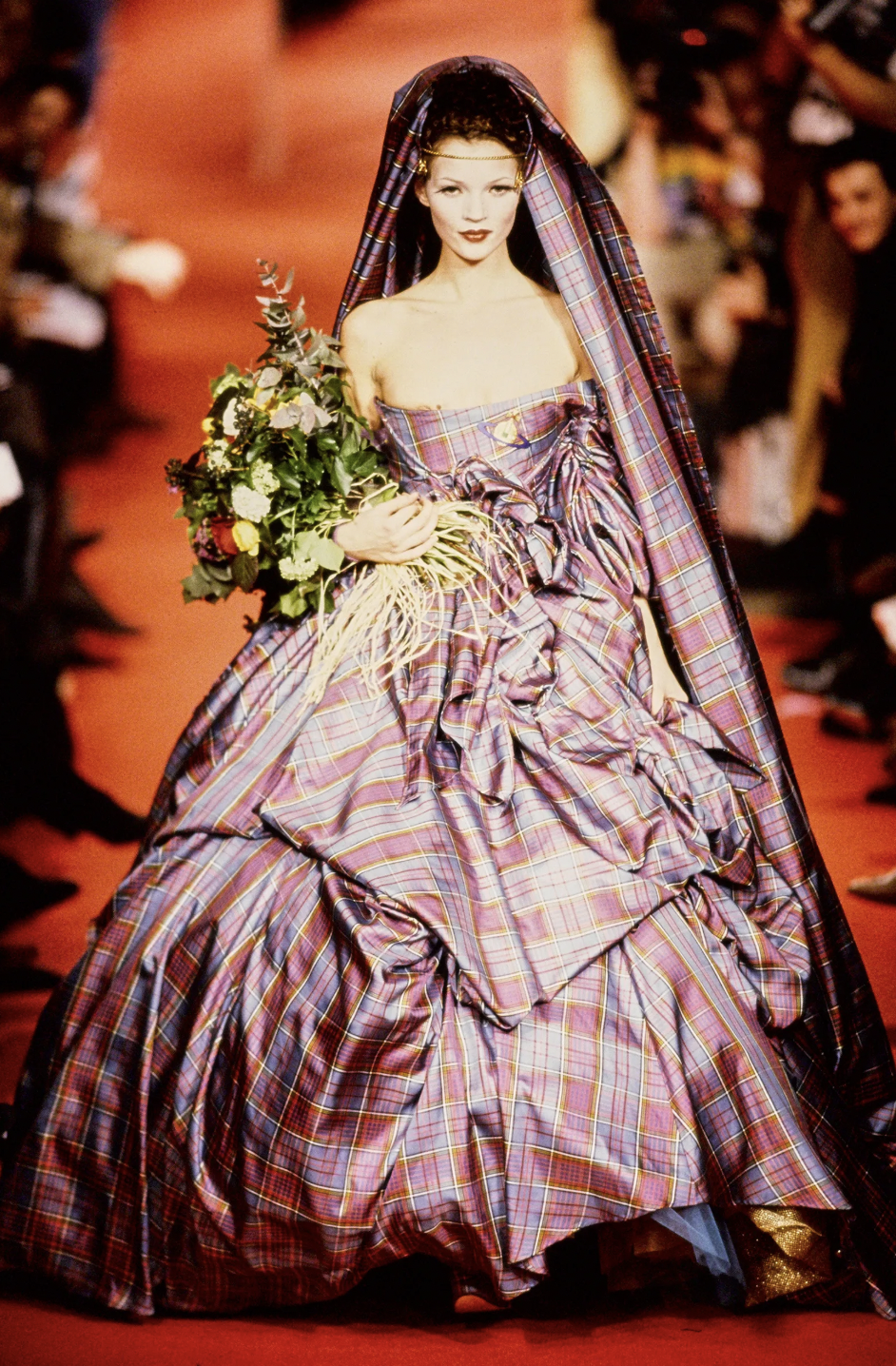
Westwood transformed safety pins, tartan, and DIY rebellion into high punk fashion. She launched her first boutique, SEX, with Malcolm McLaren in the 1970s. Her provocative designs challenged social norms and brought political activism to the runway, blending historical references with streetwear. Westwood's influence endures in her fearless approach to fashion as cultural commentary and her commitment to causes like climate action.
Sarah Burton
After Alexander McQueen's passing, Burton took the helm and honored his legacy of romantic darkness and technical mastery. She became a household name in 2011 for designing the Duchess of Cambridge's wedding dress, a modern classic that inspired countless bridal trends. Burton's tenure at McQueen featured poetic, intricately crafted collections that celebrate British craftsmanship. She now serves as creative director at Givenchy.
Stella McCartney
A trailblazer in sustainable luxury, McCartney built her brand on ethical principles, never using animal leather or fur. Her collections rely on organic materials like cotton, proving that style and sustainability can coexist. The first fashion designer to appear on Vogue USA, McCartney created Megan Markle's high neck halter wedding reception dress. With a 99% vegan skincare line accompanying her fashion work, her goal is to achieve net zero by 2040.
John Galliano
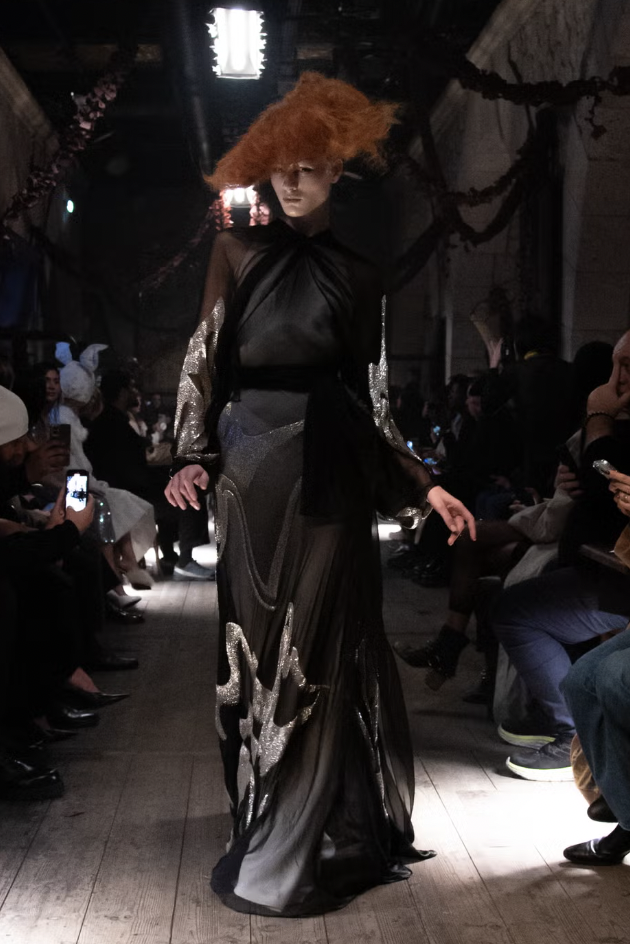
Galliano has been an influential, controversial figure since his official debut at Paris Fashion Week in 1989. His reign at Dior was defined by theatrical storytelling and runway spectacles that blurred the line between fashion and performance art. His bias-cut technique and dramatic narratives revived couture's sense of fantasy, with legendary collections like the 1997 "Mata Hari" and the 2007 anniversary show. Galliano stepped down from a ten-year tenure with Maison Margiela in late 2024.
Thomas Burberry
Inventor of gabardine in 1879, a tightly woven breathable fabric of the brand's iconic trench coat, Burberry revolutionized outerwear, symbolizing British heritage and resilience through his line. These weatherproof designs equipped explorers like Sir Ernest Shackleton and became a staple for soldiers in World War I. Today, the Burberry trench remains a timeless piece, celebrated for its craftsmanship and enduring style. The brand's latest Summer 2025 campaign led by Daniel Lee, "It's Always Burberry Weather," showcases a reinvented trench as cropped jackets and dresses.
Jonathan Anderson (JW Anderson)
The current Creative Director of Christian Dior women's, men's and haute couture, JW Anderson's gender-fluid vision has been challenging traditional fashion boundaries since 2008. His playful proportions and unexpected silhouettes have put him on Time Magazine's list of 100 Most Influential People. While working for Loewe, Anderson unveiled the Puzzle bag which rapidly became a best-seller, prized for its experimental spirit and cultural relevance.
Molly Goddard
Winner of the 2018 BFC/Vogue Designer Fashion Fund, Goddard creates voluminous, colorful tulle dresses that mix nostalgia with a playful, rebellious twist. Her creations—worn by stars like Rihanna and showcased at the Met's Costume Institute—bring a fairy-tale feel with punk attitude. In 2022, she received the Goodwood Talent in Fashion Award, confirming her place as one of London's most creative and influential designers.
Grace Wales Bonner
Wales Bonner's menswear explores Black identity and cultural heritage with thoughtful detail, fusing classic tailoring with Afro-Atlantic influences. Her ongoing collaborations with Adidas have redefined luxury sportswear, creating collections inspired by 1970s and 1980s music culture. In 2016, she won the LVMH Prize for Young Fashion Designers, further establishing her as a leading voice in contemporary design.
Richard Quinn
Richard Quinn made fashion history when Queen Elizabeth II attended his runway show and presented him with the inaugural Queen Elizabeth II Award for British Design. His bold floral prints and performative presentations have attracted celebrities like Amal Clooney and Lady Gaga. He also leads in sustainability, using recycled fabrics and supporting young designers through his open-access Peckham studio, shaping a more inclusive industry.
Mary Quant
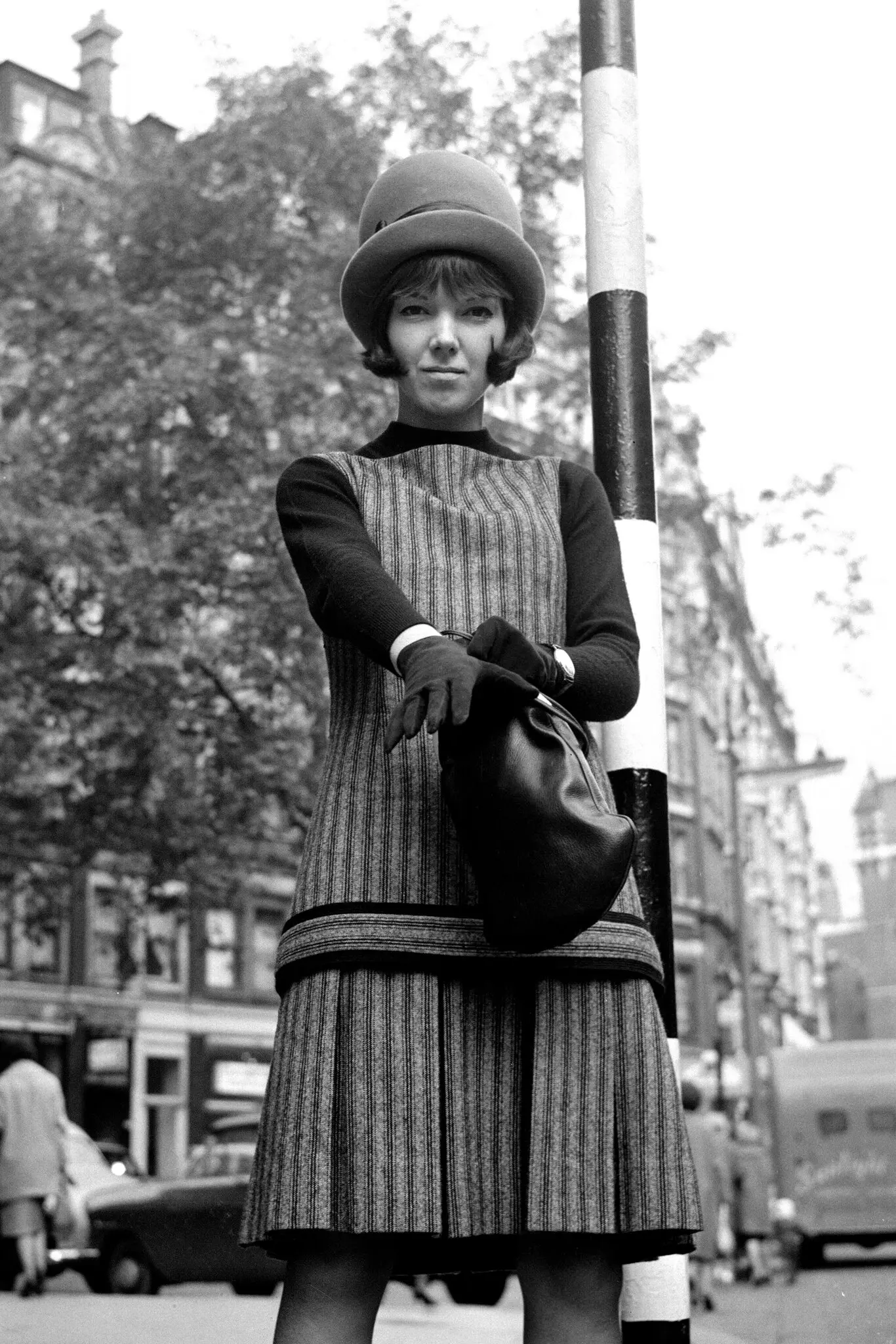
Mary Quant became a 1960s icon by popularising the miniskirt and opening her influential Bazaar boutique on King's Road. Her playful, innovative designs—like white plastic collars and black stretch leggings—helped liberate women's wardrobes and symbolised youth rebellion. Quant's style defined the Swinging London era and made her a household name. She inspired generations of designers and continues to be celebrated for her lasting impact on women's style and cultural freedom.
Daniel Lee
Lee brought new energy to Bottega Veneta, redefining the brand with innovative textures and a signature "new minimalism," while creating cult pieces like the Pouch bag. In 2022, Lee became Chief Creative Officer at Burberry, where he is reimagining the iconic house for a new generation. By focusing on heritage and global relevance, Lee continues to shape fashion's future and inspire both peers and emerging designers.
Alexander McQueen
A master of dark romanticism, McQueen became renowned for blending Savile Row tailoring with a bold, theatrical vision. His emotionally charged runway shows, such as "Highland Rape" and "Plato's Atlantis," set new standards for fashion as art. McQueen's technical brilliance and boundary-pushing creativity continue to inspire designers who seek to merge innovation with wearability. His legacy endures as a visionary who redefined the possibilities of contemporary design.
Victoria Beckham
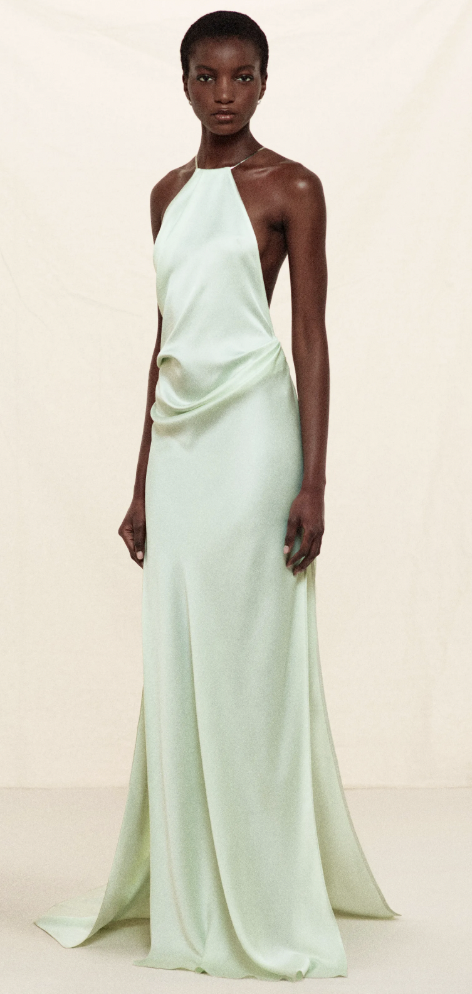
From pop icon to fashion powerhouse, Victoria Beckham has redefined modern style with her signature minimalist sophistication and body-conscious silhouettes. Since launching her label in 2008, she has earned critical acclaim and global reach, with collections now stocked in over 400 stores. Beckham's clean-lined aesthetic and advocacy for women in the industry have solidified her status as a contemporary style icon.
Peter Hawkings
After more than twenty years working closely with Tom Ford—first at Gucci, then launching Tom Ford menswear—Peter Hawkings became creative director in April 2023. He steered the brand through a significant transition that balanced continuity with evolution before his departure in July 2024. His reputation for sharp tailoring and refined menswear made him Ford's chosen successor during a pivotal era for the label.
Peter Copping
With a career shaped by roles at Louis Vuitton under Marc Jacobs, Nina Ricci, and Oscar de la Renta, Peter Copping has developed a reputation for romantic sensibility and technical mastery. Following his leadership in reviving Balenciaga's couture, he was appointed artistic director at Lanvin in June 2024, where he continues to bring refined elegance to the house's ongoing renaissance.
The Impact of British Designers in Fashion
British designers are renowned for their creativity and willingness to challenge conventions, from Mary Quant's invention of the miniskirt to Alexander McQueen's theatrical couture. Their bold spirit has made British fashion synonymous with pushing boundaries and inspiring new generations worldwide.
Beyond individual achievements, these designers have fundamentally altered how fashion operates as an industry. The British approach to education—particularly Central Saint Martins' experimental methodology—has become the global standard for fashion training, producing talent that leads major houses from Paris to New York. This educational philosophy emphasises conceptual thinking over commercial constraints, explaining why British creatives consistently challenge industry norms.
The economic impact is equally significant. The UK fashion and textile industry contributes £62 billion annually to the UK economy, supporting 1.3 million jobs across the country. British-designed products influence global retail strategies, with the "fast fashion to runway" pipeline often originating from British street style, which major brands study and adapt for mass markets. This cultural export has made London Fashion Week essential viewing for international buyers and trend forecasters.
Perhaps most importantly, British designers have pioneered fashion as social commentary. This tradition of using clothing to make statements about politics, identity, and values has influenced designers worldwide to view fashion as a platform for meaningful discourse rather than mere commercial product.
The British model of balancing heritage craftsmanship with radical innovation has become a blueprint for luxury brands globally, proving that tradition and disruption can coexist profitably.
Frequently Asked Questions
How important is sustainability in British design today?
Sustainability is a central focus in British design, particularly within fashion and architecture. Designers and brands are increasingly adopting circular fashion models, zero-waste initiatives, and eco-friendly materials to reduce environmental impact. The UK is home to a vibrant ecosystem of sustainable fashion businesses and innovators, with many consumers actively seeking out ethical and responsible brands. Industry leaders and organisations, such as the British Fashion Council, are also investing in new technologies and infrastructure to support a more sustainable future.
How do British designers stay current with trends?
British designers remain at the forefront by closely tracking both local and global trends, attending major fashion events like London Fashion Week, leveraging digital technologies, and collaborating with influencers and other creatives. This proactive approach ensures their collections are relevant, innovative, and reflective of evolving cultural shifts.
What role does tailoring play in British fashion brands?
Tailoring is a cornerstone of British fashion, with a legacy rooted in the craftsmanship of Savile Row and a reputation for quality that dates back centuries. British tailoring is synonymous with precision, innovation, and timeless style, influencing both menswear and womenswear globally. Even as trends evolve, the tradition of bespoke and high-quality tailoring remains a defining feature of many British fashion brands.
How has London Fashion Week influenced the global fashion scene?
London Fashion Week is a major force in shaping international fashion. As one of the "Big Four" fashion weeks, it sets creative and commercial trends, champions diversity and sustainability, and serves as a launchpad for emerging talent. Its embrace of digital innovation and commitment to inclusivity have made it a dynamic event that continues to influence designers and brands worldwide.
Which British designers are known for their impact on streetwear and sportswear?
British designers such as JW Anderson and Grace Wales Bonner have successfully blended streetwear and sportswear influences with luxury fashion, creating collections that resonate with contemporary culture. Historic brands like Gola and new labels like Palace Skateboards have also played key roles in shaping the UK's streetwear scene, merging British heritage with global trends.
Ready to elevate your next collection with exclusive, industry-ready prints from leading designers? Explore The Design Agent's curated digital marketplace—featuring bold florals, modern geometrics, and playful patterns for fashion, interiors, and beyond.
.png)
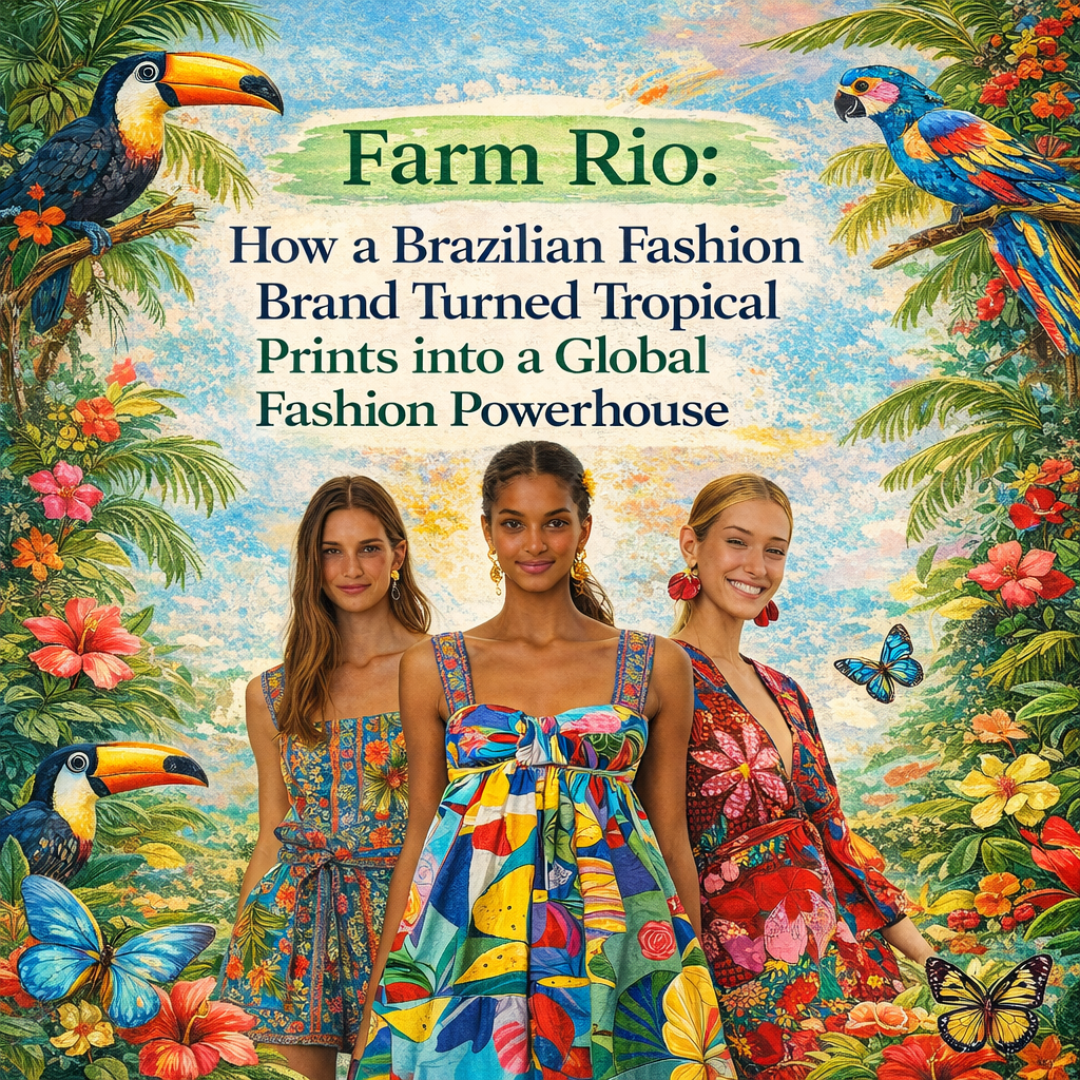

.png)

